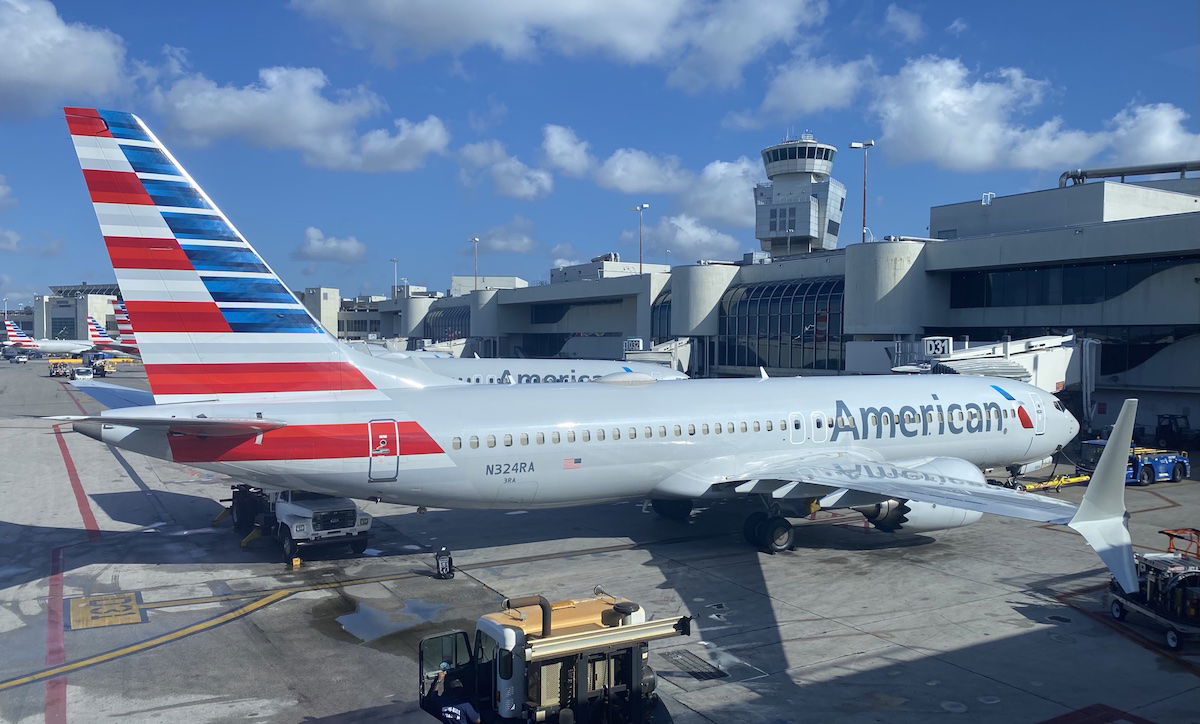Nowadays many premium credit cards (with steep annual fees) have travel credits of some sort, which can help offset the annual fee. In this post I wanted to rank these credits based on their ease of use, and also discuss why card issuers offer these credits to begin with.
In this post:
Why do many premium credit cards have travel credits?
One common question is why many premium credit cards have annual travel credits, rather than just having lower annual fees. For example, the Chase Sapphire Reserve® (review) has a $795 annual fee and offers a $300 annual travel credit. So why doesn’t Chase just get rid of the travel credit and lower the annual fee by that amount? There are a few reasons:
- Card issuers don’t want to cannibalize their own card portfolio, as issuers go after different consumers with different price points; for example, the Chase Sapphire Preferred® Card (review) has a $95 annual fee, so a major annual fee difference is one way to differentiate these products, even if much of that fee can easily be recouped
- Issuers want people to love their cards and have them at the front of their wallets; a travel credit makes it more likely that you’ll spend money on the card and keep it readily available, especially with an easy to use travel credit
- There’s often some breakage on these credits; probably not much with the Chase Sapphire Reserve, but for those credits that are harder to use, there are definitely a lot of people who don’t use their credits

The best credit card travel credits
With the above out of the way, let me rank the travel credits offered by some of the most popular premium credit cards. This ranking is based on how easily the credits can be used, rather than how big they are.
First I’ll be listing the “generic” credits (not specific to just one travel brand), and then I’ll be listing the brand-specific credits. Also note that I’ll only be listing cards that are open to new cardmembers, so this excludes products like the Citi Prestige Card and Ritz-Carlton Credit Card.
1. Chase Sapphire Reserve $300 travel credit
The Chase Sapphire Reserve® (review) offers a $300 annual travel credit:
- This is offered every cardmember year
- There’s no registration required to use it
- The credit will automatically apply toward any purchase coded as travel, including flights, hotels, rental cars, rideshares, taxis, trains, and more
It doesn’t get easier than using the Chase Sapphire Reserve travel credit, as this is truly “no strings attached.”

2. Capital One Venture X $300 travel portal credit
The Capital One Venture X Rewards Credit Card (review) and Capital One Venture X Business (review) each offer a $300 annual travel credit:
- This is offered every cardmember year
- There’s no registration required to use it
- The credit can be applied toward a purchase at the time of booking through the Capital One Travel Portal, including for flights, hotels, and rental cars
While not as straightforward as the credit on the Chase Sapphire Reserve, I still find find this to be easy enough to use. I simply book a $300+ flight each year through the portal, and that get $300 off at the time of booking. Easy peasy.

3. Hilton Aspire up to $200 flight credit
The Hilton Honors American Express Aspire Card (review) offers up to $200 in annual flight credits:
- This is offered every calendar year
- This is a quarterly credit, so you receive a $50 credit each quarter
- There’s no registration required to use it
- Just spend at least $50 per quarter on airfare either directly with an airline or through amextravel.com, and you’ll automatically be reimbursed $50
This credit is easy to use, much easier than the typical Amex airline fee credit. The catch with this credit is that you’re capped at $50 in credits per quarter, which is a fairly low threshold. Then again, with airlines having flexible booking policies nowadays, you can always just book a flight and then bank the credit.

4. Amex Platinum $200 hotel credit
American Express Platinum Card® (review) offers a $200 annual hotel credit (this isn’t available on the business version of the card):
- This is offered every calendar year
- This is only valid for pre-paid hotel stays booked through Amex Fine Hotels + Resorts® (no minimum stay) or The Hotel Collection (two night minimum stay required)
- There’s no registration required, but rather this will automatically be applied toward the first eligible transaction
While there are some limitations in terms of the types of hotels you can book, the credit is otherwise really easy to use.

5. BofA Premium Rewards $100 airline incidental credit
The Bank of America® Premium Rewards® credit card (review) offers a $100 annual airline incidental credit:
- This is offered every calendar year
- There’s no registration required to use it
- This can be used for purchases with select US airlines, excluding Allegiant, Spirit, and Sun Country
- The credit is intended to be used for incidental purchases, including preferring seating upgrades, ticket change and cancelation fees, checked bag fees, in-flight entertainment, onboard food and beverage charges, and airport lounge fees; unofficially, the credit seems to work on even more kinds of purchases
Ultimately the reason you get this card is because it’s one of the most rewarding cards for everyday spending, in conjunction with the Preferred Rewards program. This credit can help offset the annual fee, and anecdotally is quite easy to be used for all kinds of purchases.

6. Amex Platinum $200 airline fee credit
American Express Platinum Card® (review) and The Business Platinum Card® from American Express (review) each offer an up to $200 annual airline fee credit (Enrollment required):
- This is offered every calendar year
- Cardmembers must select and enroll with a designated airline each year, with the choice of Alaska, American, Delta, Hawaiian, JetBlue, Southwest, Spirit, and United
- The credit is intended to be used for airline fees, and excludes airline tickets, upgrades, mileage points purchases, gift cards, duty free purchases, and award tickets
While I manage to max this out every year, I do find this to be the most difficult airline travel credit to use, given the need to designate an airline, plus the restrictions on redemptions.

7. Hilton Surpass $200 Hilton property credit
The Hilton Honors American Express Surpass® Card (review) offers up to $200 in annual Hilton property statement credits:
- This is offered every calendar year
- This is a quarterly credit, so you receive a $50 credit each quarter
- There’s no registration required to use it
- The credit will automatically apply toward your first $50 in spending at any eligible Hilton property globally; this includes both hotels and resorts, unlike the Hilton Aspire Card credit, which only applies at resorts
Assuming you stay at any Hilton property at least once per quarter and spend at least $50, then this credit is really easy to use. It also makes the card’s annual fee really easy to justify.

8. Hilton Aspire $400 Hilton resort credit
The Hilton Honors American Express Aspire Card (review) offers up to $400 in annual Hilton resort statement credits:
- This is offered every calendar year
- This is a semi-annual credit, so you receive a $200 credit in January through June, and a $200 credit in July through December
- There’s no registration required to use it
- The credit will automatically apply toward your first $200 in spending at any eligible Hilton resort globally (this only includes resorts and not hotels, and you can find all resorts at this page)
This credit is easy to use, with the major restriction being that it’s only valid at resorts, and not non-resort hotels. The other restriction to maximizing the up to $400 in credits is that you’d have to stay at a Hilton resort at least once every six months.

Bottom line
Nowadays many premium credit cards offer annual travel credits. This is a way for card issuers to give cardmembers value, and encourage people to keep cards front-of-wallet. While I think there’s value to be had from all credits, not all credits are created equal, as you can tell. Hopefully the above is a useful rundown of the relative value of these credits.
Which credit card annual travel credits have you used?





I just used the AmEx $200 hotel credit at Park Hyatt Chicago at a rate less that the hotel website so score. Plus free breakfast $60 credit including room service plus $100 hotel credit. Maxed out breakfast and enjoyed the Champagne spilt from the minibar - I wasn’t hungry enough to eat supper.
And I’ve got a workaround for the airline credit after the AA gift cards stopped being reimbursed
CSR and the Altitude Reserve are in a class by themselves. C1 portal is expensive and it sucks. Amex makes you register for most credits, then spreads the credit out on a monthly basis, with no rollover. With Amex I get the signup bonus, and then cancel the card after a year. The points stay alive because I also have the No annual fee Blue Business Plus.
One thing that makes this a little more difficult is whether the benefit is on a calendar year or cardmember year. For example, the Venture X is on a cardmember year and if that is not your go-to card for flights, one must pay attention so as to not miss the benefit.
I have the Hilton Surpass card. Do I need to stay in a hotel to use the credit or would it apply if I just eat a meal in a hotel restaurant without incurring a room charge? (I’m not referring to a third party operated restaurant that happens to be located in the hotel, but rather specifically to a restaurant that is operated by the hotel.) Hilton’s web site says that the credit applies to...
I have the Hilton Surpass card. Do I need to stay in a hotel to use the credit or would it apply if I just eat a meal in a hotel restaurant without incurring a room charge? (I’m not referring to a third party operated restaurant that happens to be located in the hotel, but rather specifically to a restaurant that is operated by the hotel.) Hilton’s web site says that the credit applies to all charges billed to the room, but it doesn’t address this specific situation. Has anyone received the credit in this situation, or had it denied? Thanks for sharing your experience.
It's not explicitly addressed, because it depends on how any particular property sets things up. If the restaurant charges through the same merchant account as the front desk of the hotel, it will get the credit; if it doesn't, it won't (and if the charge posts as a charge at the restaurant, you're not likely to be able to convince Amex to give the credit).
That said, if you're regularly going more than 4 months...
It's not explicitly addressed, because it depends on how any particular property sets things up. If the restaurant charges through the same merchant account as the front desk of the hotel, it will get the credit; if it doesn't, it won't (and if the charge posts as a charge at the restaurant, you're not likely to be able to convince Amex to give the credit).
That said, if you're regularly going more than 4 months without staying at a Hilton, the Surpass may not be a great fit anyway.
US Bank altitude reserve?!?! 325 on an travel OR DINING spend on the card is automatically reimbursed. $75 credit on Southwest priority card. Ritz card $300 credit which in practice works on any airline charge under $500 as long as you say it's a seat upgrade/exit row. B of A premium rewards Elite 300 air incidental credit. Booking thru a portal is a massive pain in the @$$ cr@ck, doubly so when there are schedules...
US Bank altitude reserve?!?! 325 on an travel OR DINING spend on the card is automatically reimbursed. $75 credit on Southwest priority card. Ritz card $300 credit which in practice works on any airline charge under $500 as long as you say it's a seat upgrade/exit row. B of A premium rewards Elite 300 air incidental credit. Booking thru a portal is a massive pain in the @$$ cr@ck, doubly so when there are schedules changes or IRROPS. Look at the countless stories on reddit of day of departure disasters when booking thru chase portal.